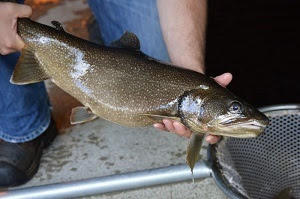Michigan awards $3.6 million to battle invasive species

The full list of grant recipients, project descriptions and award amounts is available on the Michigan Invasive Species Grant Program website.
Since its start, the program has targeted four key objectives:
- Preventing new introductions of invasive species through outreach and education.
- Monitoring for new invasive species and the expansion of existing invasive species.
- Responding to and conducting eradication efforts for new findings and range expansions.
- Strategically managing and controlling key colonized species.
This year’s grant awards provide funding for several projects involving promising new methods of reducing the effects of terrestrial (land-based) invasive species:
- Using new techniques to increase development of beech trees that are resistant to beech bark disease. These trees will be planted in the Upper and Lower peninsulas.
- Grafting selected ash trees that have survived the emerald ash borer and testing them for resistance, with the goal of developing stock that could be used for restoration plantings.
- Testing a newly approved biological control, Hypena opulenta – a moth from the Ukraine whose larvae primarily feed on invasive black and pale swallow-wort vines – to determine its ability to establish, reproduce and help control these vines in Michigan.

Some of the grant dollars also will support a range of efforts to prevent and manage aquatic (water-based) invaders: Read more







